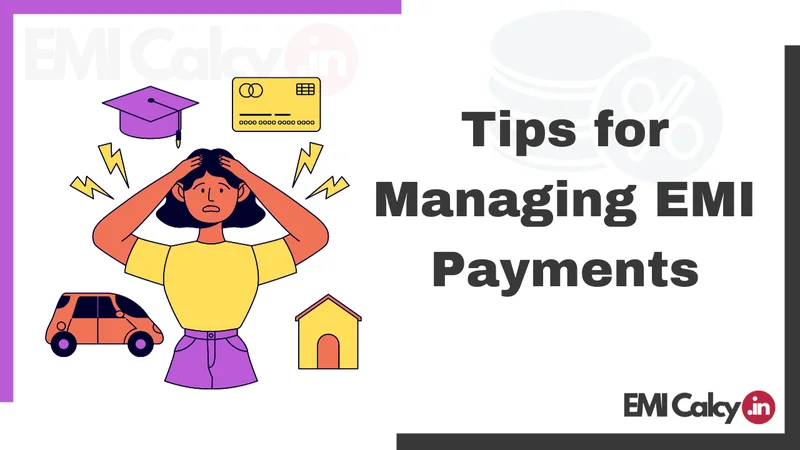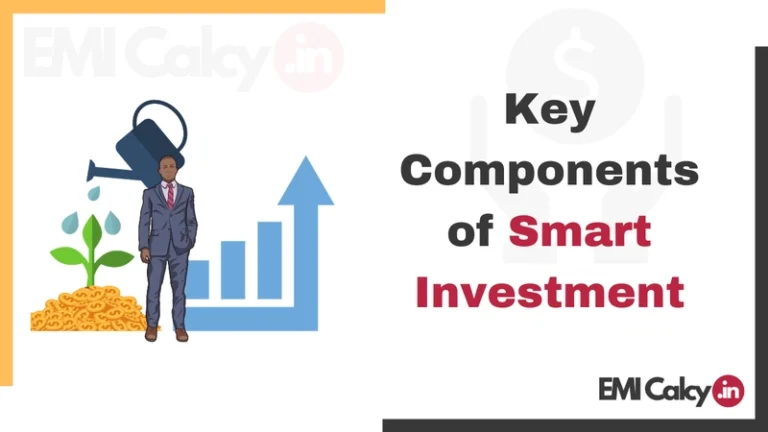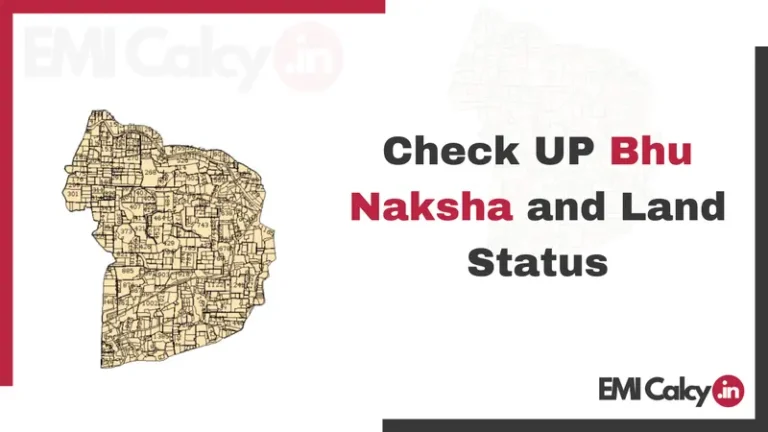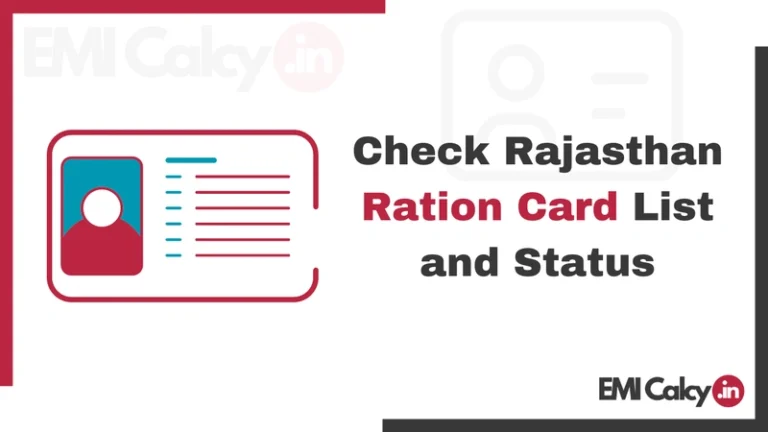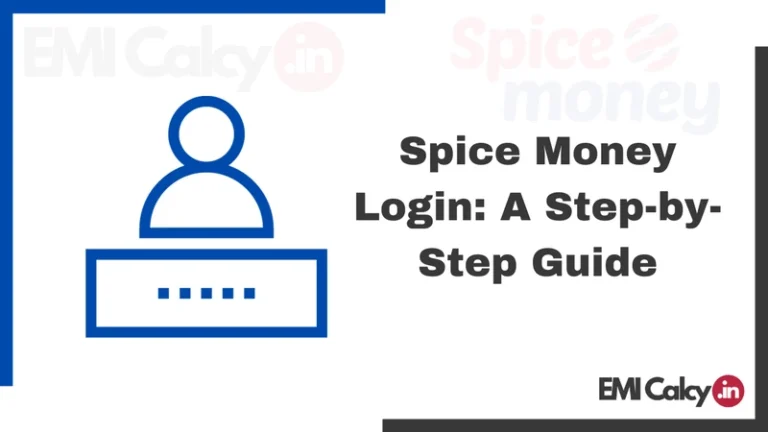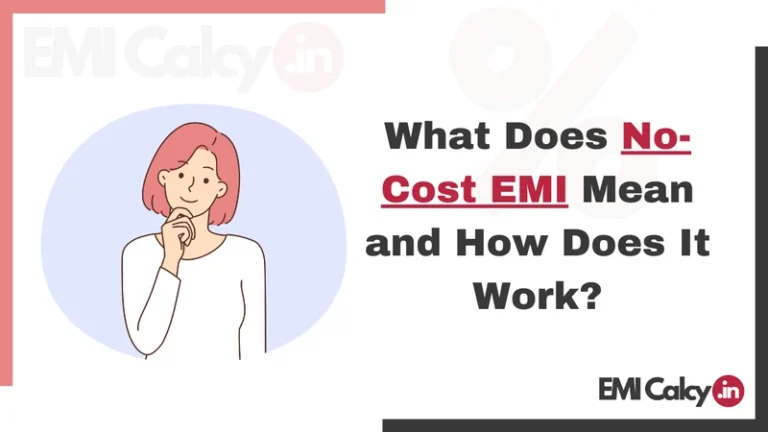In our busy world today, we sometimes need money to help with big costs. Whether it’s buying a home, a car, or even just the latest smartphone, many of us rely on Equated Monthly Installments (EMIs) to make these purchases more manageable.
EMIs have become an integral part of our financial lives, but they can quickly turn into a burden if not managed effectively.
In this article, we will analyze the ins and outs of EMI payments and offer practical tips on how to manage them efficiently, ensuring your financial well-being.
Understanding EMIs: What Are They?
Before we start with the tips, let’s start with the basics. What are EMIs, and how do they work? EMI, short for Equated Monthly Installment, is a fixed amount of money that you pay every month to repay a loan or credit you have taken from a financial institution.
It’s commonly used for loans related to housing, vehicles, education, or even personal expenses. EMIs consist of both principal and interest components.
The principal amount goes towards repaying the initial loan amount, while the interest covers the cost of borrowing the money.
Related: How to Reduce EMI of Existing Personal Loans
Why Managing EMIs Effectively Is Crucial
Smart EMI management is essential for maintaining your financial health. When managed correctly, EMIs can help you afford substantial purchases without putting excessive strain on your finances.
However, if mismanaged, they can lead to debt traps and negatively impact your CIBIL credit score. Here’s why managing your EMIs effectively is crucial:
- Maintain Financial Stability: Efficient EMI management ensures that you don’t overextend your budget, allowing you to cover your basic living expenses and save for your financial goals.
- Preserve Your Credit Score: Consistently paying EMIs on time helps build a positive credit history, which can be vital for future financial endeavors like buying a home or applying for a credit card.
- Avoid High-Interest Costs: Mismanaging EMIs can lead to higher interest costs and, in some cases, extend the repayment period, making the overall cost of your purchase significantly higher.
- Debt-Free Living: Effective EMI management can help you achieve a debt-free life sooner, giving you the financial freedom you desire.
Now that we understand the importance of managing EMIs smartly and effectively, let’s start with some practical tips to help you do just that.
15 Tips for Managing Your EMI Payments Effectively:
1. Budgeting Is Key
Before committing to any EMI payments, it’s crucial to have a clear understanding of your overall financial situation. Create a budget that outlines your monthly income and expenses.
This will help you determine how much you can comfortably allocate to EMI payments without straining your finances.
Be realistic and conservative when estimating your budget to ensure you have a financial safety net. In your journey, this online bank loan EMI calculator will help you easily.
2. Compare Bank/Lenders and Offers
Don’t rush into taking a loan without exploring your options. Different lenders offer different interest rates and terms. Shop around, compare offers, and choose the one that suits your financial situation the best.
A lower interest rate can significantly reduce your overall EMI burden.
3. Understand the Terms and Conditions
Read the fine print of your loan agreement carefully. Pay attention to details such as interest rates, processing fees, prepayment charges, and the tenure of the loan.
Knowing the terms and conditions can help you avoid surprises and make informed decisions.
Related: Longer Bank Loan EMI Tenure Pros and Cons
4. Choose the Right EMI Tenure
The tenure of your EMI can have a substantial impact on your monthly cash flow. A longer tenure means lower monthly payments but higher interest costs in the long run.
A shorter tenure results in higher EMIs but lower interest costs. Consider your financial stability and choose tenure that aligns with your budget. This article will assist you in determining the benefits and drawbacks of a longer bank loan EMI tenure.
5. Prepay Whenever Possible
If your financial situation improves, consider making prepayments on your loan. Reducing the outstanding principal amount can significantly reduce the interest you pay over the loan’s tenure.
Check with your lender about their prepayment policies, as some may have restrictions or charges associated with prepayment.
6. Set Up Automatic Payments
Missing an EMI payment can result in late fees and negatively impact your credit score. To avoid this, set up automatic payments through your bank account. This ensures that your EMIs are paid on time without any effort on your part.
7. Emergency Fund for Unforeseen Expenses
Life is unpredictable, and unexpected expenses can arise at any time. To avoid dipping into your EMI funds, have an emergency fund in place. This safety net will help you cover unforeseen costs without affecting your EMI payments.
8. Track Your Expenses Regularly
Keeping an eye on your monthly expenses is essential for managing your EMIs effectively. Use budgeting apps or spreadsheets to track where your money is going.
Identifying areas where you can cut back can free up more funds for EMI payments.
Related: How to Transfer Home Loan from One Bank to Another?
9. Avoid Multiple EMIs Simultaneously
Taking on multiple EMIs can become overwhelming, especially if they overlap. It’s advisable to stagger your financial commitments, ensuring you can comfortably manage one EMI before taking on another.
10. Don’t Compromise on Insurance
For loans like home loans or car loans, it’s advisable to invest in insurance coverage that can protect you in case of unforeseen events like accidents, theft, or natural disasters. This can save you from significant financial setbacks.
11. Negotiate with Your Bank/Lender
If you face a financial crisis, don’t hesitate to communicate with your lender. They may offer temporary relief options, such as a moratorium or an extension, to help you get back on track without negatively affecting your credit score.
12. Periodically Review Your EMI Structure
As your financial situation changes, it’s essential to revisit your EMI structure. If you receive a salary hike or experience an increase in your income, consider increasing your EMI amount to pay off the loan faster.
13. Avoid Impulsive Purchases
It’s easy to get carried away with the idea of purchasing something on EMI. Before you make any impulsive purchases, ask yourself if it’s a necessity or a luxury.
If it’s not essential, consider saving up for it rather than taking on additional debt.
14. Stay Informed About Financial Markets
Interest rates can fluctuate, affecting your EMI payments. Keep an eye on economic developments, as this information can help you make informed decisions about when to lock in a loan with a fixed or variable interest rate.
15. Try Professional Financial Advice
If you’re overwhelmed by your financial situation or find it challenging to manage your EMIs, don’t hesitate to seek professional help. A financial advisor can provide personalized guidance and help you create a comprehensive financial plan.
Related: How to Save Money from Salary Like a Pro
Conclusion
Effectively managing your EMI payments is a crucial aspect of maintaining your financial well-being. By following the tips outlined in this article, you can ensure that your EMI obligations don’t become financial burden but rather a tool to help you achieve your dreams and aspirations.
Remember to budget carefully, compare offers, and stay informed about your financial situation. With these practices in place, you can enjoy the benefits of EMIs without the stress of financial strain.
FAQs on Managing EMI Payments Effectively
What is an EMI?
An EMI, or Equated Monthly Installment, is a fixed monthly payment you make to repay a loan or credit over a specific period. It typically includes both the principal amount and the interest.
How can I budget for EMI payments effectively?
To budget for EMI payments, start by assessing your monthly income and expenses. Deduct essential living costs from your income to determine how much you can allocate to EMI payments without straining your finances.
Is it better to opt for a longer or shorter EMI tenure?
The choice between a longer or shorter EMI tenure depends on your financial situation. A longer tenure results in lower monthly payments but higher overall interest costs, while shorter tenure leads to higher monthly payments but lower interest costs.
How can I reduce the overall cost of my EMI payments?
You can reduce the overall cost of your EMI payments by making prepayments when you have extra funds available. By paying off the principal amount of loan faster, you’ll reduce the interest you need to pay over the loan’s tenure.
Disclaimer: This article offers general insights and should not be taken as personalized advice. It is essential to consult with qualified professionals for advice tailored to your unique circumstances.

